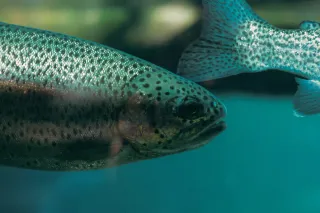Active banners: 1 Visible banners: 1
Banner ID: 4 Has content: true
Let's create continuous conversations about climate change education: Spreading the Sediment of Science!
Taking Action
Provided by: Alliance for the Great Lakes |Published on: July 20, 2023
Lesson Plans
45678
Synopsis
- In this lesson, students will look at sample datasets of environmental conditions at a beach (such as the amount of litter, presence of bacteria, weather conditions, and number of beach-goers), use it to identify an issue, and then craft an action plan to address it.
- Students will take on the role of city officials and present their problem and solutions using the data to support their decision.

Subjects: Biology, Civics, English Language Arts, Mathematics
Authors: Alliance for the Great Lakes
Region: North America, USA - Midwest, United States, Global, Wisconsin, WI - Northwoods (CESA 9, 10, 11, 12), WI - Lake Michigan & Fox/Wolf Watershed (CESA 6, 7, 8), WI - Metro (CESA 1, 6)
Languages: English
Teaching Materials
Positives
- There is a discussion portion to this lesson that helps students debrief and also talk about presenting and listening in general, making it a nice resource to use for introducing presentations.
- This is part of a larger curriculum that has many great resources available.
Additional Prerequisites
- The lesson materials note the Garbage Investigation and Beach Mysteries as prerequisites to this lesson but students should be able to do this lesson without difficulty on its own.
- Some students, including English language learners and younger students, may need the terms in the vocabulary section introduced ahead of time. English language learners may also need to know the definition of waste as it is used in this lesson.
- The rubric is included in the full K-8 booklet on page 311.
Differentiation
- Students in math classes can use the data to make line graphs that show trends between two data groups (for example, number of beach-goers in relation to the amount of litter).
- Strategic planning can be used to ensure that each group has a strong public speaker and a strong data interpreter.
- In language arts classes, students can use persuasive writing/speaking techniques to improve their initial presentations.
- Students in health or science classes can talk about the effect that animal waste or overflowing sewers can have on the health of beach-goers, aquatic ecosystems, rivers, and lakes.
- After completing the activity with fictional data, students who live near a beach (or park) can collect their own data and come up with solutions to real problems in their area. They can also present it to city officials to give their writing/speaking an authentic purpose.
Scientist Notes
Teaching Tips
Standards
Resource Type and Format
All resources can be used for your educational purposes with proper attribution to the content provider.
Teaching Materials
Educator Support
My Account







